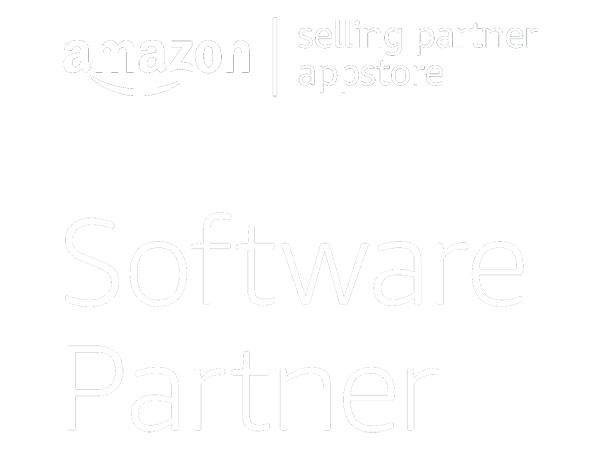Early on, small business owners make a number of critical decisions that shape the success of their business. Entrepreneurs put time, research, and critical thought into naming their company, identifying target markets, making their first hires, forming partnerships, and much more. As for their bank—well, they’re almost all the same, right?
Actually, banking options for small businesses include a wide range of benefits and drawbacks. As a small business owner, you might value technology and online banking. You might value a partnership where you feel the bank is providing transparency. You might simply want to limit fees and maximize cash back spending. And of course, when you need a small business loan or access to working capital, your banking partner will be your first option. In this post, you’ll see how small businesses are choosing to bank today, and the pros and cons of the most popular options.
Banking options for small business
We surveyed 500 small business owners to ask what type of bank they do business with. The breakdown is as follows:
- 52% national bank
- 23% online-only bank
- 16% local/community bank
- 16% regional bank
- 14% credit union
While traditional banks still lead the way, small business owners have far more options for financing partners than even ten years ago.
Which option is best for your company? Before we compare small business banking options, let’s first consider your business goals.
Know your business goals
Startup companies focused on rapid growth will have different business goals and different financial goals than established small businesses with operational goals.
When choosing a bank, consider both short-term and long-term goals, and how the bank’s products and services can help you achieve both. If you’re building a local small business that will serve local customers, you may consider a local bank vs a national bank. Your local bank might offer personalized services and networking opportunities that align with your goals. If you’re building a digital agency that will service regional, national, or global businesses, that local bank or credit union may not have the resources you need.
Of course you should consider rates, fees, and cash back opportunities, but there may be products and services tailored to your business goals that some banks offer and others do not. With that in mind, let’s take a look at some of the most popular small business banking options.
National Banks
More than half of small business owners surveyed bank with a national bank such as Wells Fargo, Chase, or Bank of America. The size and geographical presence of national banks contributes to their popularity, combined with large marketing budgets and extensive networks.
Pros
Generally, a national bank can offer more products and services than smaller institutions, as well as the latest technology to facilitate financial transactions. Their extensive network of branches and ATMs, as well as robust online banking, provide a convenient banking experience. Since national banks have deeper pockets, they can waive fees and get creative in ways that smaller banks can’t.
Cons
A national bank’s primary focus is on offering larger credit facilities to large companies with deep pockets. Consequently, their products and services may be more expensive. National banks also require strong personal credit and a profitable business to qualify for loans. What’s more, because of the amount of documentation required for lending, how these banks are organized to approve and underwrite loans, and regulatory requirements, the funding process can be inflexible and take a long time. They also experience frequent staff turnover, so it may be hard to build a personal relationship with the bank, which can be crucial for small business funding.
Regional and Local Banks
Regional and local banks offer many of the same small business lending services as national banks. Their approach and focus is different because their function is to serve as a commercial bank only within the community in which they operate.
Pros
Local/regional banks usually offer more free accounts and charge fewer fees than national banks. They will know what your community needs and which services (including yours) will have the most impact. In addition, local banks generally have more flexible lending requirements. They may consider a business owner’s character, qualifications, and impact the business will have on the local community as well as the credit score. Consequently, a local bank might approve a loan that a national bank would not consider. Furthermore, local and regional banks are invested in the community, so they can help small business owners make useful local connections.
Cons
Local banks have fewer branches and ATMs, which may result in fees and inconveniences. Their services and products may be more limited. In addition, a community bank typically does not have the funds to loan tens of millions of dollars for large capital expenditures such as construction projects.
Credit Unions
Credit unions are like local community banks, except that they are member-owned, non-profit cooperatives that serve their members. The Navy Federal Credit Union is an example. As member-owned institutions, credit unions are known for providing a safe place to deposit money and borrow.
Pros
Because credit unions exist to support their members, their profits are returned back to members in the form of reduced fees, higher savings rates, and lower loan interest rates than national banks. As a smaller operation than national banks, you have a better chance of dealing with someone who will take the time to understand your business and offer a more personalized service. Credit unions often offer their members free business information, consulting services, or accounting assistance.
Cons
Because of their smaller operations, credit unions tend to have less lending capacity and therefore offer smaller loan amounts than large banks. For the same reason, some credit unions are less technologically advanced, with less sophisticated online and mobile banking options and fewer ATMs.
Online Banks
Online banks emerged in response to the difficulty so many small businesses have in accessing capital from traditional brick and mortar banks. Capital One, Bluevine, OnDeck, and Quontic Bank are examples of online lenders. Online lenders offer a wide variety of loans and credit facilities to small businesses. Choosing the right online financing option for your business will depend on what you need and what you qualify for.
Pros
Online lenders approve loans faster than brick and mortar banks, some within 24 hours and most within two weeks. Online banks are typically very convenient and efficient to deal with. They often pass the savings from brick and mortar on to clients through better rates and terms. Some companies even offer unsecured personal loans that you can use to fund your business. Lastly, because they are online, it is easy to compare loan rates and terms among them.
Cons
Online banks don’t all offer great fees and rates. Some can be higher than your local or national bank. Moreover, if you want more personalized banking services and want to build a relationship with a financial institution, most online banks don’t offer that opportunity. You’ll also have to manage your loans and payments online.
What is the best bank for small businesses?
Depending on your small business goals, your business credit, and the amount of money you need, any of these options might be right for you. If you know your business will need working capital, consider your startup costs and lending needs during your initial research.
It’s also important to remember that as a small business owner, you likely will not have time to manually track your cash flow and expenses, or build models to forecast the future. Consider using technology to bring your essential financial data into one place. Wherever you are in your company’s journey, this will put you in a better position when it comes time to seek small business financing.


